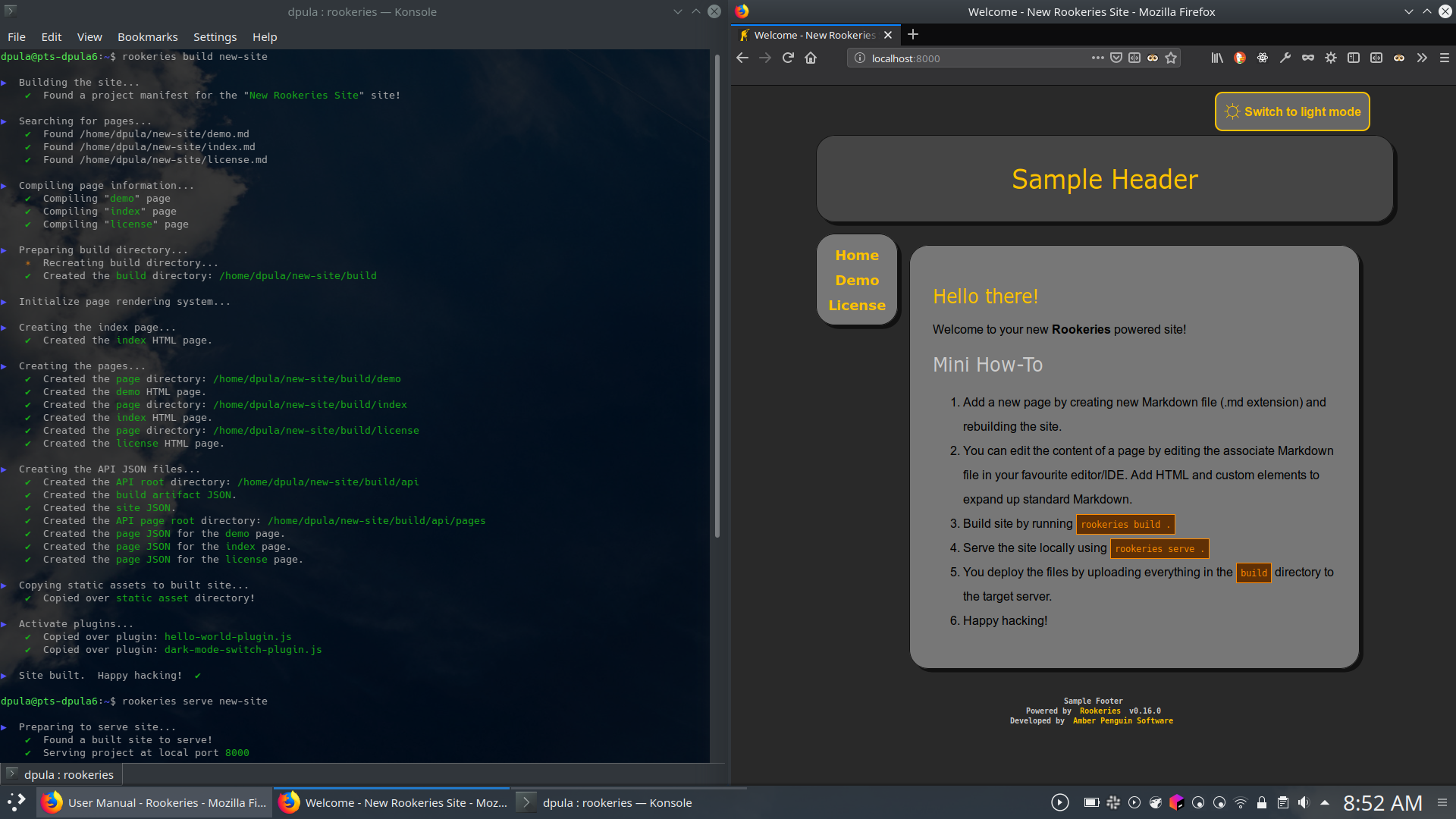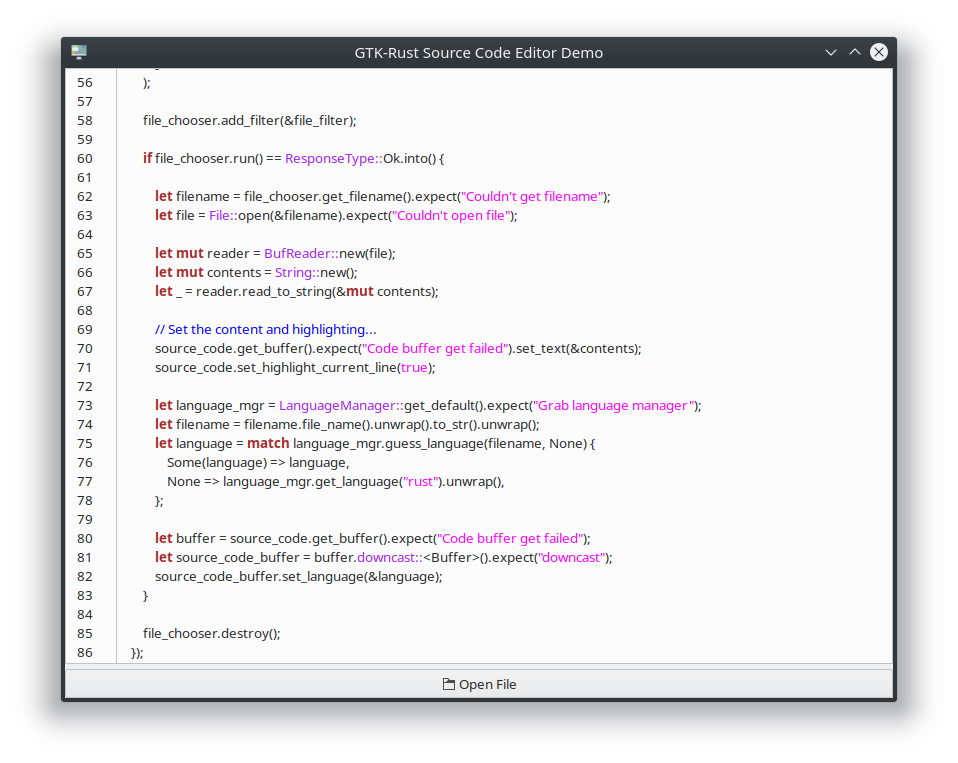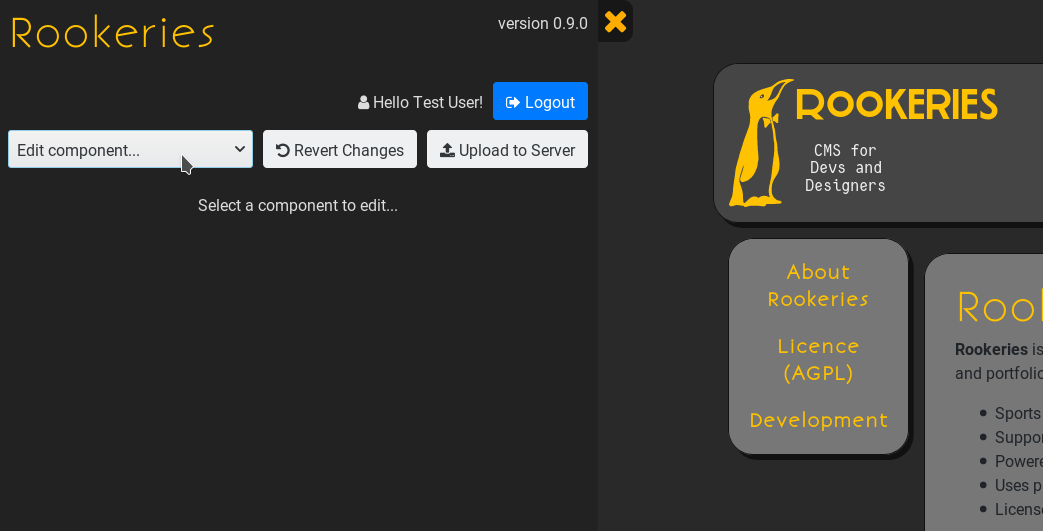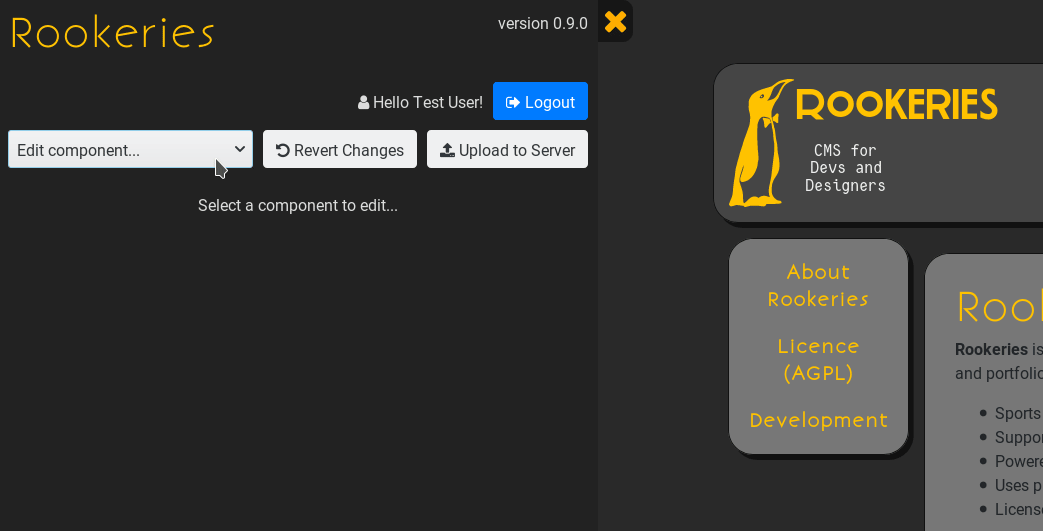I just rewrote Rookeries in Rust, and the latest version is now available as a Docker image on Docker Hub. (This is why I have not responded to emails in a bit… I’ve been doing a lot of thinking of what I want to do next.)
So why a rewrite? Ultimately I decided to change the direction of Rookeries as a project (making it more of a static site generation tool + headless CMS). I also wanted to improve my knowledge of Rust. (A programming language that I believe is quietly revolutionizing computing bit by bit. I really need to write about it sometime) But to show that there is reason for my madness:
Traditional CMS
I realized that my approach to Rookeries was heavily inspired by WordPress. And WordPress represents the best in class (in terms of ease-of-use) for traditional CMS. Traditional CMS being applications that control all the aspects of a website: pulling data that it organizes inside a database, the applying logic to manage the workflows of the data, and the creating and managing the user interface that ultimately shows the data. The traditional CMS has to do a lot of things. That usually means that the CMS developer needs to add a lot of assumptions and constraints to ship said CMS. And when those assumptions no longer hold, it takes a lot to change the codebase.
In the case of WordPress (and similar styled CMSs), the server has to do a lot of work with building a page. A WordPress site consists of both the site, and its admin console. While there has been work on updating the theme management and the page/post editor, ultimately there are limits to what kind of UIs that WordPress can support. WordPress also has a massive plugin marketplace, because the core developers do not know what every website will need. (Nor does it make sense to build everything in or every possibility.) For a modern WordPress powered site to stand-out, it needs needs a custom theme and often a half-dozen plugins. Naturally having so many moving parts, from different vendors (some theme and plugin devs are better than others) means there is a a greater chance of security issues. The routine upgrade of themes, plugins and the WordPress core is a rite that one has to diligently perform regularly.
It would be impossible for Rookeries to compete with WordPress head on, just given the number of hours I would need to sink to make things a reality. Also I do not think this desirable given the current direction.
The Alternative of Static Site Generation and API Driven Sites
The assumption that the server must handle most of the layout and display issues does not hold when dealing with modern browsers. Modern browsers can run rich multimedia experiences and real-time applications. Running intensive applications such as a 3D game is now possible, and will become come place. Ultimately the web is now a platform, a target that application developers can directly target.
As a result, many web agencies are turning to the JAMstack and having their websites act as their own full-blown applications. The applications either talk to a headless CMS acting an API or even foregoing that with static site generation. Probably the best example of this is Gatsby for generating sites built in React, which I am currently using to build out the Amber Penguin Software site. I also plan on eventually converting my other existing WordPress sites to use Gatsby or a similar tool. These tools as other web agencies found, separate out the complex logic of a frontend app from the backend and its data. These means more flexibility when building out a site. It also means that the backend CMS can be hardened and simplified to avoid many security issues. In fact with static site generation, the web app can be so removed from its CMS and database, that attacking a site becomes irrelevant. Such a site can also have better performance, and take advantage of caching and CDNs.
The Future of Rookeries
While there are a number of headless CMS and static site generators out there, I feel like the overall experience of working with them needs some improvement. There are no real good headless CMS systems written in Python or Rust, and I do think there are some really unpleasant rough edges around running a static site. Hence I plan on reworking Rookeries to help me build a CMS that can power my various sites. At the moment, this version 0.10.0 has feature parity with the previous version of Rookeries. I still need to rewrite some of the admin and testing in Rust, to avoid the need for Python. Also I need to figure out a nice manner to expose a flexible API to my sites. Fortunately I have enough examples to keep me busy for a bit.



